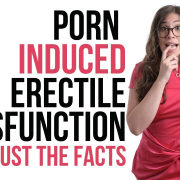What Is a Sexology Degree & What a Sexologist Does
Sexology is the scientific study of sexuality, and a sexology degree and studying human sexuality credentials you as a sexologist. If you haven’t heard this term before, there are sexology degrees for those that examine sexual desires, sexual function, and sexual behaviors.
There are many avenues to becoming a sexologist, and each of them is valuable for a career you’re exploring. To help you understand the sexology degree, we bring the most relevant facts about this degree and profession.
Numerous Paths to Becoming a Sexologist
Sexology is the study of a person’s thoughts, feelings, and behaviors around their own or others’ sexual behavior from a contextual standpoint. The sociological viewpoint is concerned with how individuals engage during sexual encounters, sexual preferences, and how culture & community affects these behaviors. Part of getting a sexology degree is learning about the emotional and systemic components that effect sexual performance.
In private practice or clinics, sexologists frequently address issues like identity and / or sex-related dysfunctions such as anorgasmia, erectile dysfunction, pelvic pain, and ejaculation control.
Studying the field in which you are most interested and where you believe you can make a difference is a key to becoming a sexologist and helping others learn more about their sexuality in general.
Education Requirements to Become a Sexologist
There aren’t many degree programs specifically designed for sexologists. Since sex may be researched through a variety of academic fields, you can become a sexologist by earning a variety of graduate degrees. A degree in physiology, biology, public health, anthropology, social psychology, or women’s studies can also be used to become a sexologist in addition to the degrees in psychology, sociology, and medicine already mentioned.
To become a sexologist, you must earn a doctoral, master’s, or other advanced degree in a subject that allows you to conduct sexuality research. Because sexual behavior is influenced by biology, psychology, and the society one lives in, a complete understanding of sexual behavior involves information from a variety of perspectives.
Do Sexologists Need Certification?
Several organizations provide a route to getting a sexology degree, even though sexology is not a profession that is regulated in the United States. Some places for a sexology degree includes the Therapist Certification Association and the American College of Sexologists.
Typical requirements include:
- An advanced degree,
- A certain number of additional hours of training in the field of sexuality and sex-related topics,
- A certain number of hours having worked in the field of sexology,
- Clinical sexologist’s supervision for your sexology degree.
A Career of a Sexologist
Depending on their chosen field, a sexologist’s degree can differ a lot when compared to other colleagues. Most sexologists will dedicate their work to doing one or more of these things:
- Study topics related to sexuality,
- Work as a clinician with clients facing sexual problems,
- Teach about sex and sexuality in an academic setting (i.e., school or university),
- Supervise other sexologists interested in getting practice and certification in this field,
- Work with the wider population as a sex educator,
- Speak on the topic of sex for other professionals in similar fields.
During a Session With a Sexologist
People will often wrongly assume that when a couple or a person decides to see a sexologist it includes a lot of physical touch, nudity, and practice. However, it’s completely the opposite. Most of the time, couples will not even be asked to hug or kiss them in front of their chosen sexologist.
Instead, they will be invited to talk about their sexual issues, desires, or behaviors and maybe get a little bit of homework. What’s even more important to say is that clients will never have to do something they are uncomfortable with or consider inappropriate. Think about a session with your sexologist as a conversation about emotions related to sex rather than sex positions and practices.
Sexologist vs Sex Coach
A sexologist’s job may resemble a sex coach’s in many ways, or it may be very dissimilar. A sexologist’s work does not involve touch or direct assisting in the moment of the sexual difficulty.
On the other hand, a sex coach mostly works with individuals, couples, and groups to improve their sex lives and self-esteem regarding sex and sexuality. They rarely conduct their study. Both sexologists and sex coaches can offer sessions or lectures to clients or other professionals, which is one way in which their work paths overlap.
When to Visit a Sexologist
There are numerous physiological explanations for sex-related problems. Medical intervention can be used to treat those, yet the majority also have psychological problems that need treatment. Let’s look at them below.
Penis Size
For men, the size of the penis can be a major problem. A man’s confidence can be negatively impacted by having a small penis, which can cause anxiety and nervousness and significantly lower his performance. A specialist may assist the patient in overcoming confidence issues, while the doctor may recommend medication and hormonal therapy.
Erectile Dysfunction
Men who lose their erections or are unable to maintain one can experience extreme distress. In the majority of situations, this is treatable. The patient can return to a normal sexual life with the aid of a sexologist.
Pain and/or Discomfort during/after Intercourse
The act of having sex becomes traumatizing if one or more of the parties feels pain during or after. There are various causes of painful erections, including infections, sores, ulcers, and dryness. There is a cure for this condition. It is much more vital to see a doctor and receive treatment than to let an infection persist and suffer in quiet.
In addition, a loss of interest in sex, phobias, or inhibitions brought on by an abusive experience may stand in the way of a happy marriage. A sexologist addresses problems with intimacy and relationships and offers a guided self-help personal intervention to help you get the most out of your relationship.
In Conclusion
Sexologists help their clients to solve their problems related to sex. They can work with clients alone or with couples. Also, sexologists can work outside the clinical setting and dedicate their time to research, teaching, or exploring different topics related to sex and similar fields.
Depending on their interests and preferences, you can get a sexology degree if you are interested as well. If you’re more interested in just learning, consider a video packed with decades on information in under one hour!
About Life Coaching and Therapy
Life Coaching and Therapy (LCAT) is a therapy and coaching practice that transforms our clients lives through our flexible. Multi-technique approach and pleasure-skills training provided by systematically-trained and licensed therapists!
Get to know our founder and owner, Amanda Pasciucco, (a.k.a. The Sex Healer) a Licensed Marriage and Family Therapist (LMFT). And an AASECT Certified Sex Therapist (CST) that has developed innovative therapy programs and therapy videos that get results.
Our team of compassionate, licensed therapists and certified sex therapists help all clients who visit us for a variety of personal, relationship, intimacy and sex problems.
LCAT provides on-site appointments, as well as video chat and text therapy programs.
Learn more about how LCAT can help improve your life at What We Do.



















